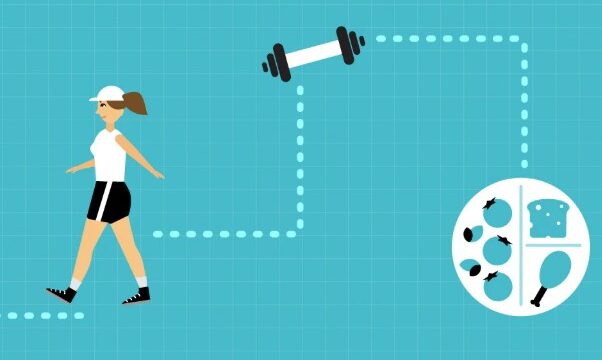Confidence is one of the most important parts of any fitness journey.
It helps you stay focused, patient, and positive as you work toward your goals.
While motivation may come and go, confidence gives you the strength to keep going even when progress feels slow.
Building and maintaining this self-belief takes time, but it is completely possible with the right mindset. When you approach your fitness goals with understanding and kindness, confidence naturally grows stronger with every small achievement. The first step in staying confident is setting realistic goals that fit your lifestyle. Confidence thrives on success, and success comes from goals you can actually reach. Instead of setting broad or overly demanding expectations, start small and specific. For example, if your goal is to get stronger, focus on consistent progress like doing a few extra repetitions each week. When goals are clear and achievable, every step forward gives you a sense of accomplishment. This sense of progress fuels your belief that you are capable, which is the foundation of confidence. It also helps to focus on how far you have come rather than how far you have left to go. Many people lose confidence when they compare themselves to others or expect results overnight. But fitness is not about perfection or competition—it is about your own growth. Taking a few moments each week to notice your improvements, whether in strength, energy, or consistency, helps you stay proud of your journey. Even the smallest progress is a sign that your efforts are working. Confidence grows when you acknowledge these steady wins rather than chasing unrealistic ideals. Consistency is another powerful builder of confidence. When you show up regularly for your workouts, no matter how small they are, you teach yourself discipline and resilience. Over time, this consistency builds trust in your abilities. You begin to see yourself as someone who follows through, which strengthens your confidence both in fitness and in life. It is better to move a little each day than to aim for perfection once in a while. Regular effort is what builds real results and lasting self-assurance. A positive mindset also plays a major role. The way you speak to yourself matters just as much as the effort you put into your workouts. If you focus only on what you cannot do yet, it becomes harder to stay encouraged. Instead, shift your thoughts to what you can do. Celebrate your strengths, your effort, and your determination. Remind yourself that progress takes time and that every challenge is part of learning. This shift in self-talk helps you replace doubt with appreciation and keeps your confidence steady, even when results take longer to appear. It is also important to create an environment that supports your goals. Surround yourself with people who uplift you and encourage your progress. Whether it is a workout partner, a friend, or an online community, positive support can make a big difference in how confident you feel. When others cheer you on, it reinforces your belief in yourself. At the same time, it can help to distance yourself from negative influences that bring unnecessary comparison or pressure. Your fitness journey is personal, and the best support comes from those who respect and celebrate your efforts. Confidence also comes from understanding that setbacks are part of the process. Everyone faces moments when things do not go as planned—missed workouts, low motivation, or slower results than expected. Instead of seeing these as failures, view them as opportunities to learn and adjust. A setback simply shows that you are human. The more you practice responding to challenges with patience, the stronger your confidence becomes. Over time, you will find that you recover faster and stay focused because you have built resilience. Another powerful way to build confidence is to connect your fitness goals to how they make you feel. Instead of measuring success only by appearance or numbers, focus on the emotional and mental benefits. Notice how exercise lifts your mood, reduces stress, and boosts your energy. These improvements are valuable signs of progress that often come before physical changes. When you focus on how good movement makes you feel, you naturally become more confident in your ability to care for your body. Routine can also support confidence. When fitness becomes a natural part of your day, it feels less like a task and more like a habit you enjoy. Whether it is morning stretches, an evening walk, or a few moments of movement during breaks, keeping a steady routine helps you stay grounded. Each time you complete your workout, you reinforce your commitment to yourself. That sense of reliability becomes a source of pride, reminding you that you can count on your own effort. Gratitude is another quiet but powerful motivator. Taking a moment to appreciate what your body can do right now builds a sense of respect and confidence. Instead of focusing on what you wish to change, be thankful for how your body moves, heals, and grows stronger each day. Gratitude transforms frustration into motivation and helps you approach fitness with a sense of joy instead of pressure. When you train from a place of appreciation, confidence flows more naturally. Tracking progress in a simple way can also help you stay confident. You might write down your workouts, note your energy levels, or record moments when you feel proud. Looking back on your notes after a few weeks or months can be surprisingly encouraging. It shows you how much you have improved and reminds you of your dedication. Seeing your progress in writing turns effort into visible proof, which strengthens belief in your abilities. Rest and recovery are also part of confidence building. Taking time to rest shows that you understand your body’s needs. Pushing too hard without recovery can lead to burnout, which lowers motivation and self-assurance. When you allow your body time to recharge, you return to your workouts with energy and focus. This balance between effort and rest reinforces your sense of control and builds lasting confidence in your fitness routine. Lastly, remember that confidence is not something you wait to feel—it is something you build through action. Each time you show up, even when it feels difficult, you strengthen your belief in yourself. Confidence is the result of doing the work, learning from the process, and respecting your journey. It does not depend on being perfect or reaching a specific goal; it grows every time you prove to yourself that you can try again. Fitness confidence is about trust—trusting your body to adapt, trusting your mind to stay focused, and trusting the process to lead you where you want to go. When you treat yourself with patience, gratitude, and care, you create a foundation that cannot easily be shaken. Every step, every stretch, and every breath becomes part of building that inner strength. Over time, you will find that confidence becomes more than just belief—it becomes part of who you are. You begin to approach challenges with calm determination, knowing that you are capable of progress at your own pace. Staying confident with your fitness goals is not about never doubting yourself; it is about continuing forward with kindness, even when doubt appears. The more you honor your journey, the stronger your confidence will grow, turning fitness into not only a path to health but also a celebration of your own resilience and self-trust.






